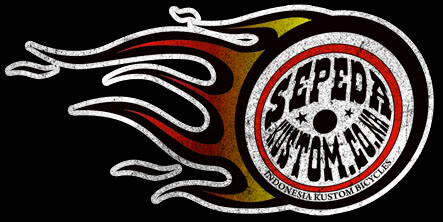Comments (276)
Hirak Pati at Occupy Nashville Hirak Pati attended Occupy Nashville after being arrested in New York
Related Stories
* Ben & Jerry's taste for protest
* In pictures: Wall Street protests
* Wall Street protesters released
In Nashville, Hirak Pati has mixed feelings about his experience at the Occupy Wall Street protests in New York.
It was the first time the 20-year-old political science student had found himself on the wrong side of the law.
He was among the 700 people arrested for trying to cross the Brooklyn Bridge.
It wasn't pleasant. He spent seven hours in a cell, with not much to eat or drink. And his parents aren't best pleased.
"It's hard for me dealing with my family and their reactions," he says. "It is a pain for them to deal with me getting arrested. It's never happened in the family before."
On the other hand, Hirak believes his arrest was part of something historic, something important.
A movement that isn't just about Wall Street, but which he hopes will grow in Tennessee, where he goes to university.
"I am a very small part of it, but this is the opportunity finally for the people to speak out and participate in our democracy," he says. "We're finally going to get our voice back in our democracy. We are the 99%."
Occupy Nashville
We are talking in Nashville's Legislative Plaza, where the Occupy Nashville movement is camped out.
Small protests like this have sprung up all over the US.
It is a gentle occupation of this large modern square. The people here say the police have been understanding, and there's been no hint of trouble.
Around the large tree-lined pool and fountain there are sleeping bags and placards. Under an awning providing shelter from the light drizzle there are rugs and tables with large jars of peanut butter.
They are overlooked by two nearby bronze soldiers, a tableau in a Korean war memorial. Someone has stuck a blue rose on the end of a bronze rifle.
This may be part of a mass movement, but it is very small-scale.
When I arrive there are only nine people. But during the day the numbers grow.
People are constantly coming and going, and by the afternoon there are a couple of dozen. They say that in the evenings they can get 100 people.
The people I talk to are earnest, intelligent and mostly young.
Most of the coverage of the Occupy movements that I have seen suggests the movement is incoherent in its demands.
Two men talk at a table at Occupy Nashville Numbers for Occupy Nashville vary, depending on the time of day
Not in Nashville. In one way or another, everyone I talk to says the problem is that big corporations dictate politics in America.
You have to be rich to run. And that, they say, squeezes out the voices of all but 1% of the people.
Bananas, not politics
Many mention a judgment of the Supreme Court last year that allows companies to spend directly on election campaigns.
There is a 31-year-old nurse who got involved with Obama's campaign in 2008 because of health care, and feels the corporations are undercutting people's security in the future.
An anthropology student says he's an anarchist who wants the people to reclaim democracy.
He was too busy with work to come down here at first. But a friend told him "this is it. This is what we've been talking about for two years."
There's a chef who says he has been telling people for years that the corporations have got too powerful.
He says he's not a socialist.
"I like bananas," he says.
When I look askance he explains: the world needs corporations and capitalism to shift goods around, but that doesn't mean big companies should dominate politics as well as commerce.
'Growing movement'
These numbers don't make a movement.
But what these people have in common is that they have found a new focus for their feelings.
Cecily Friday isn't here most of the time. She is at home looking after her two young children, but she is helping organise.
"This started in Wall Street and it has since grown to 1,000 cities in the USA, and it is spreading all over the world," she says.
"It is a growing movement. We have a system when all our politicians from both parties are bought and paid for.
"It has corrupted our government. The average citizen has lost their hold on getting meaningful legislation."
This "Occupy" group at least is a more focused, more left-wing version of what I hear every time I leave Washington: politicians are out of touch, the machinery of government is broken.
Does it matter? I am still not sure, and in fact don't think we can be certain yet.
In Nashville, I didn't find anyone who had become politically active because of their personal experience with the economy.
Those I spoke to had long been politically concerned but have now found a new outlet for their beliefs.
This might grow; it might wither and fade.
More from me, I hope, tomorrow from the New York protests.
celebrity rumorsaccounts receivable factoring
